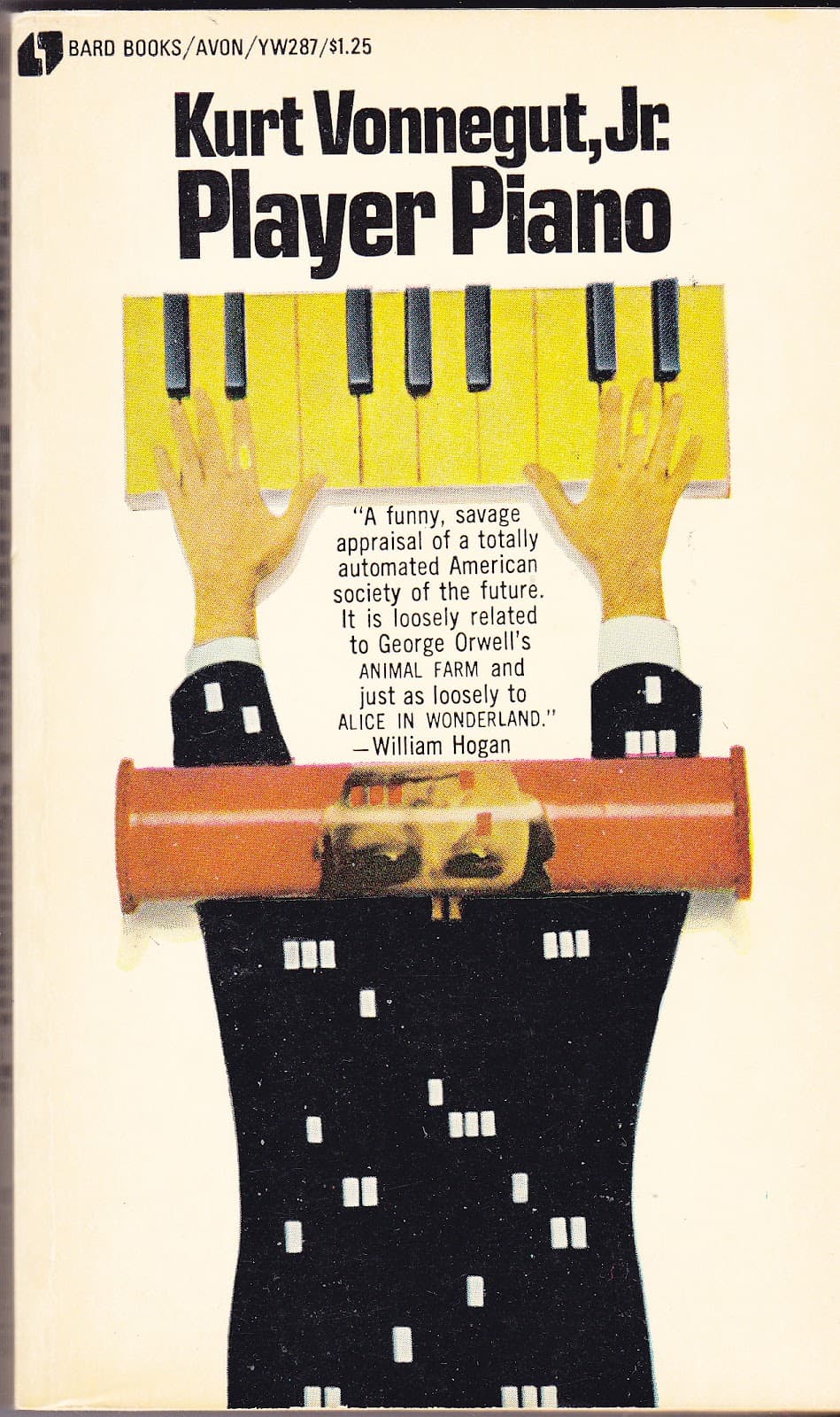Vonnegut's 1952 Novel "Player Piano" Foresaw Modern AI Crisis of Human Meaning

A recent Interintellect Reading Group, hosted by Nancy Wang and Lucy Arbor, convened to discuss Kurt Vonnegut's debut novel, Player Piano, highlighting its profound and enduring relevance to contemporary society. The discussion centered on the novel's prescient exploration of automation's impact, particularly the threat it poses not just to jobs, but to the very "lack of meaning in people’s lives" it creates, as stated by Interintellect. Published in 1952, Vonnegut's dystopian work envisioned a future where advanced machinery had largely rendered human labor obsolete, leading to widespread purposelessness and a rigidly stratified society.
Player Piano depicts a world where engineers and managers oversee vast automated systems, while the majority of the population, displaced from meaningful work, struggles with a profound sense of alienation. The novel serves as a cautionary tale, suggesting that a society prioritizing efficiency and technological advancement above all else risks dehumanizing its citizens by stripping away their sense of contribution and identity. This core theme resonates strongly with today's rapid advancements in artificial intelligence and automation.
Modern discourse frequently echoes Vonnegut's concerns, with experts debating AI's potential to displace jobs and fundamentally alter the nature of human work. While some foresee increased productivity and the creation of new, more creative roles, others warn of widening inequalities and a societal struggle to redefine purpose outside traditional employment. OpenAI CEO Sam Altman, for instance, has acknowledged that work is a major source of meaning and that the transition to an AI-driven world could be "deeply painful," requiring a redefinition of "what contribution looks like."
Interintellect, an organization dedicated to fostering open and respectful intellectual discussions and building a global community for thoughtful dialogue, provided the platform for this timely conversation. Their reading group aimed to explore these complex issues through the lens of Vonnegut's foundational science fiction, prompting participants to consider the ethical and societal implications of technological progress. The group examined how Vonnegut's insights, penned over seven decades ago, continue to offer critical perspectives on the ongoing challenge of integrating advanced technology while preserving human dignity and purpose.
The enduring popularity and continued analysis of Player Piano underscore a persistent societal anxiety about the future of work and human identity in an increasingly automated world. Vonnegut's early warning remains a powerful prompt for ongoing dialogue about how to shape technological development to enhance, rather than diminish, the human experience.